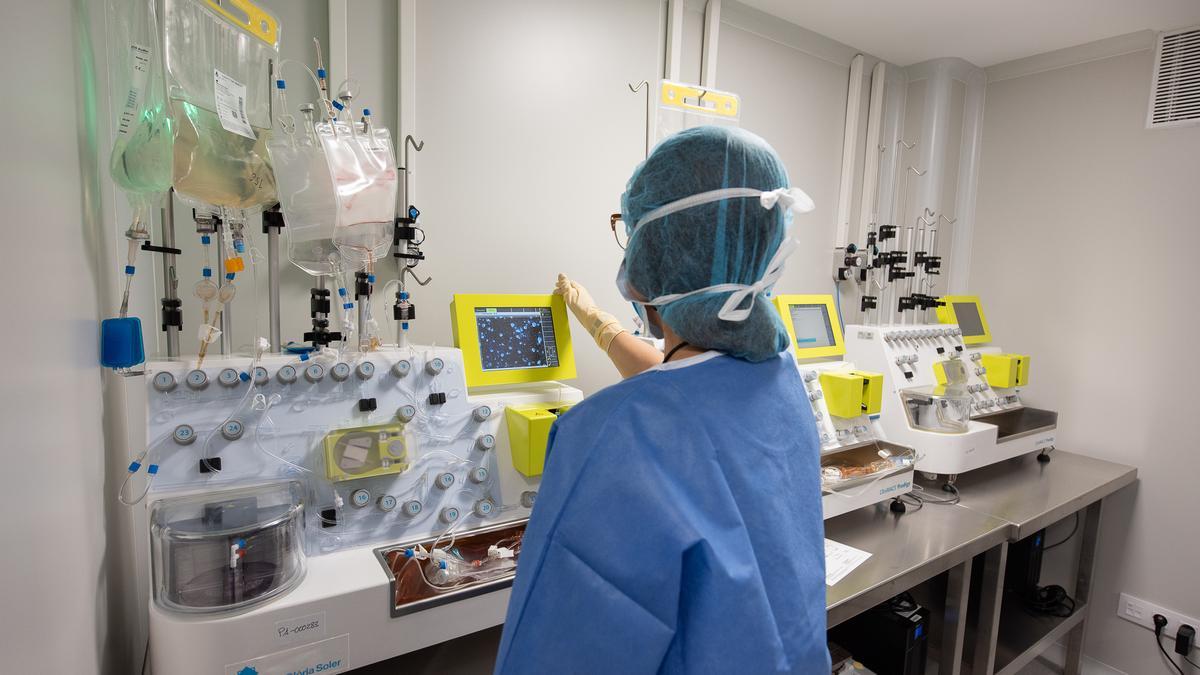a treatment of immunotherapy is safe and effective for babies with an aggressive form of acute lymphoblastic leukemia (ALL), as it improves their survival rate and causes fewer side effects than other therapies.
Results from a phase 2 clinical study involving 39 infants treated with the immunotherapy blinatumomab, combined with chemotherapy, are published today by the New England Journal of Medicine.
The study, led by the Princess Máxima Center (Holland), indicates that this immunotherapy»markedly improves» the two-year survival rate -from 66% to 93%- of children.
Three quarters of babies with acute lymphoblastic leukemia presenting a particular flaw in the DNA of leukemic cells, called the KMT2A rearrangement, gives rise to an aggressive form of ALL with a poor prognosis.
intensive chemotherapy works great on half of babiesbut in the rest the disease reappears after two years, or they fail because of the disease or, sometimes, from the side effects of the therapy.
Survival «significantly longer»
The international clinical trial involved 30 babies from nine countries between 2018 and 2021, who had the drug added to existing chemotherapy treatment.
The team compared the results with those of 214 children who had been treated in prior years with standard therapy, ie, chemotherapy without blinatumomab.
The results indicate that the survival of babies who received one month of immunotherapy in addition to chemotherapy was «significantly higher,» the Princess Máxima Center reported.
He 93% were still alive two years after diagnosisversus 66% of children who had only been treated with chemotherapy in the past.
Two years after diagnosis, 18% of infants treated with blinatumomab saw the cancer come back or died from the diseaseindicating «a strong improvement» compared to those treated with chemotherapy alone, of whom 51% recurred or died in the same time period.
«very important» study
Blinatumomab, a immunotherapy already offered to some adults and older childrenit binds to leukemia cells on one side and immune cells on the other, connecting the immune cells to the leukemia cells and killing them.
Various experts unrelated to the clinical trial pointed out that it is of good quality, although it has some limitations, indicates Science Media Center Spain.
He study is of «good quality and very important» and the treatment is associated, «at least in the short term, with a great improvement in the survival of infants» (under 12 months), according to Susana Rives of the Sant Joan de Déu Hospital in Barcelona.
Among the limitations cited by Rives and Josep María Ribera of the Catalan Institute of Oncology, the small number of patients stands out, 30 infants, the relatively short follow-up (two years) and the fact that it is not a randomized trial, that is, it compares patients treated with and without blinatumomab within the same study.
Related news
For Ribera, thegreat merit» is that it places the survival of this age groupcharacteristically with a poor prognosis, at the level of other subgroups of childhood ALL with a good or intermediate prognosis.
The team from the Princess Máxima Center, headed by Inge van der Sluis, acknowledged in a statement that the study is small, but with a «clear enough» result, adding that want to confirm the effect of this immunotherapy in a «larger study with more children.»

